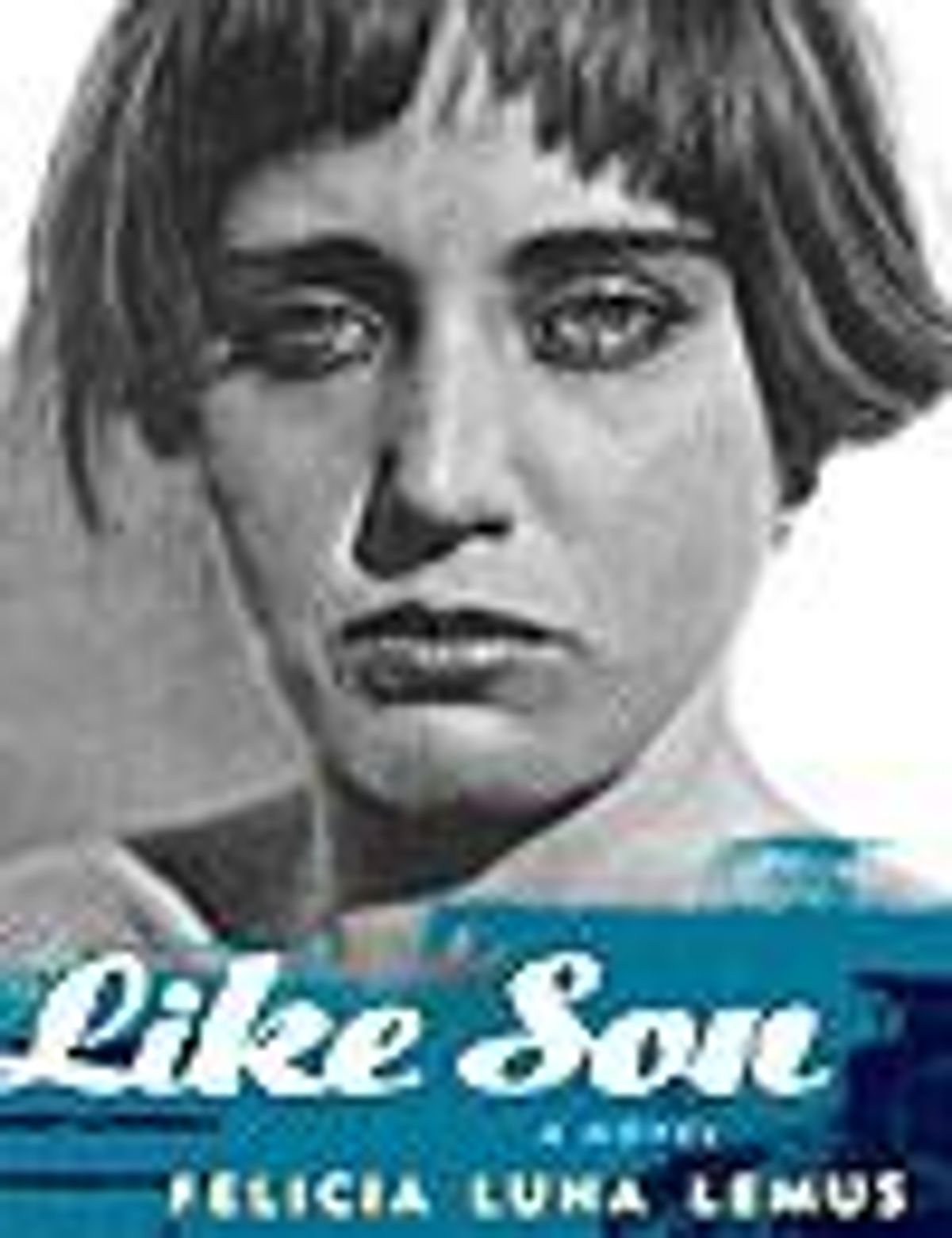
Felicia Luna Lemus's second novel is an engaging post-op page-turner.
April 18 2007 12:00 AM EST
November 17 2015 5:28 AM EST
By continuing to use our site, you agree to our Private Policy and Terms of Use.

Felicia Luna Lemus's second novel is an engaging post-op page-turner.
After the last pages of a heart-pounding thriller, when the room swims back in focus, sometimes a tiny doubt begins to surface. What happened to the microphone in the men's room? you wonder, or How can a bouffant stop a bullet? Although Felicia Luna Lemus's engaging second novel, Like Son, isn't a mystery or thriller, it has a major unresolved plot element--a secret the reader is eager to learn, but which never gets explained. Surprisingly, this doesn't sink the boat. It says a lot about the skillful forward pull of Lemus's narrative, and the attractions of her main character, that we barely notice what we're missing.
Like Son recounts a seven-year obsession, an intoxication passed down through generations like a facial mole or a tendency to faint at parties. In Los Angeles in 1995, on his 23rd birthday, Frank Cruz opens a present from his father--a reproduction of an Edward Weston portrait of Nahui Olin, a charismatic, scandalous (real-life) figure in 1920s Mexican art circles, and a volume of her poetry, inscribed to Frank's grandmother. "My Love," Nahui begins, then quotes one of her own poems, " 'She went through me like a pavement saw,' Yours as ever for the revolution, Nahui."
The phone call from his father was the first awakening. Francisco Cruz had been pushed out of Frank's life 15 years earlier by Frank's upwardly mobile mother, a Los Angeles plastic surgeon, who would also distance herself from Frank as he grew from a presentable little girl to a post-punk skater boy with bound breasts under his T-shirt and hoodie. "The doctors tell me I'm dying," Francisco says, having finally obtained Frank's phone number. "Let's go for a nice lunch."
Like Son is a post-trans novel--possibly the first to be published. Frank's transsexuality is not the subject. When his mother shoves $5,000 at him to get him to leave her front doorstep, he uses the money not for top surgery but to escape to New York to find new love and unfold the significance Nahui Olin held for his long-dead grandmother. There's no gender-related angst in the book, and no attempt to conceal Frank's birth gender. The occasional difficulties or awkwardness--the moments when Frank doesn't pass, for instance, like at the hospital after a train accident--aren't glossed over, but they don't form or influence Frank's self-image or affect the ongoing action of the novel.
Frank tells his girlfriend Nathalie that he chose his name in honor of his father and "for its function as a verb." When she challenges him, he sends her to the dictionary: "Webster's, definition 11: to enable to pass or go freely." Then he offers a kind of credo: "To live without the curses and consequences that crippled my family before me, to break free of a life I preferred were not mine, to pass without constraint through the world...as a man, a good and decent man--to this I aspired."
Although not as fiery as Nahui Olin, Nathalie gives Frank plenty to worry about. After seven years of bliss, she disappears from their little apartment off Tompkins Square Park, leaving only a note that she'll be back. This crisis forces Frank to reconsider his devotion to the family legends. It takes another odyssey, this time back to Los Angeles, to confirm a new direction--out and away from the past.
To add to an already layered story, Felicia Luna Lemus's partner is the novelist T. Cooper, who wrote last year's Lipschitz Six, or Two Angry Blondes, which also featured a trans man, although his gender was central to the novel. Between them, they're revolutionizing fiction about trans issues. Get in on this early.
Want more breaking equality news & trending entertainment stories?
Check out our NEW 24/7 streaming service: the Advocate Channel!
Download the Advocate Channel App for your mobile phone and your favorite streaming device!
